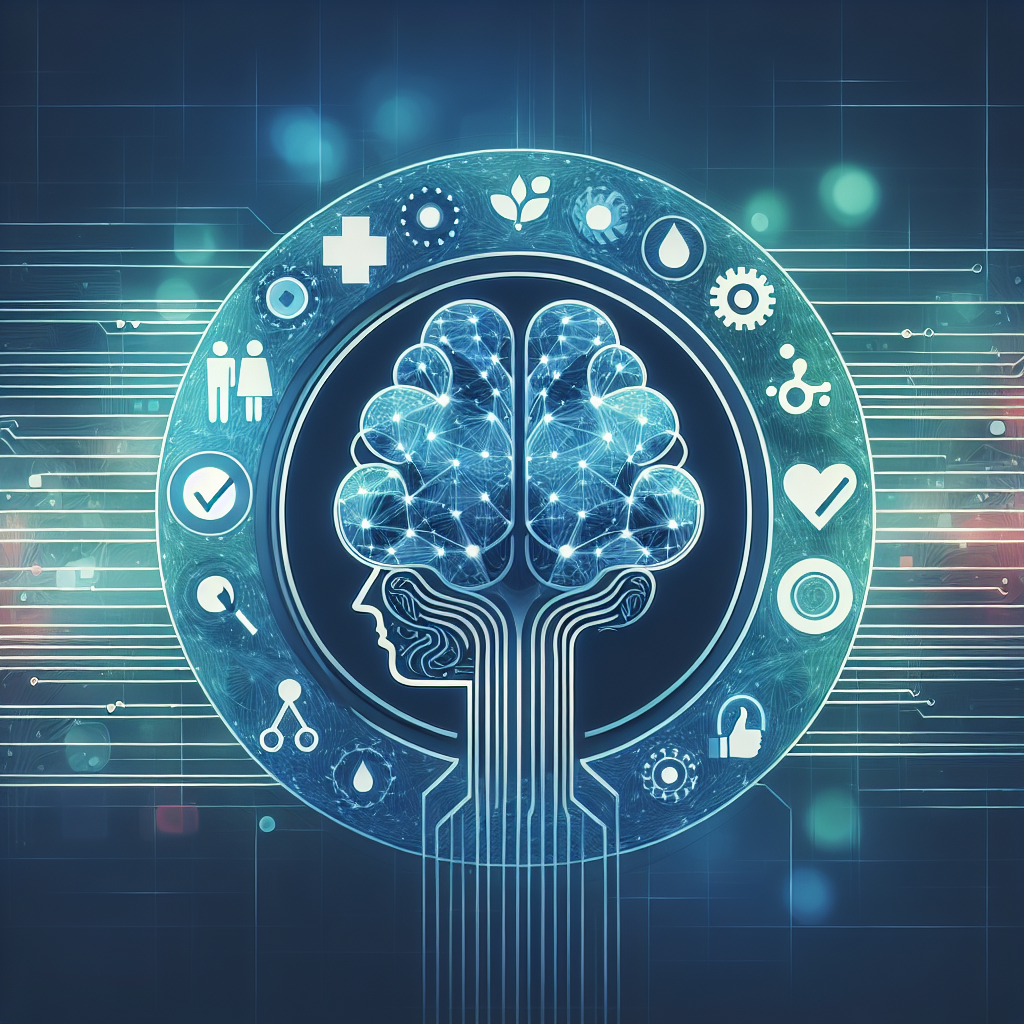In recent years, the field of artificial intelligence (AI) has made significant advancements in various industries, including healthcare. One area where AI has the potential to revolutionize is preventive healthcare. Preventive healthcare focuses on identifying and addressing potential health issues before they become serious, ultimately leading to improved overall health outcomes and reduced healthcare costs. AI has the ability to analyze vast amounts of data and identify patterns that can help predict and prevent health problems before they occur.
AI algorithms can help healthcare providers in several ways, including early detection of diseases, personalized treatment plans, and real-time monitoring of patients. By utilizing AI technology, healthcare professionals can make more informed decisions, leading to better patient outcomes and improved quality of care. In this article, we will explore the potential of AI in preventive healthcare and how it can revolutionize the way we approach healthcare in the future.
Early Detection of Diseases
One of the key advantages of AI in preventive healthcare is its ability to detect diseases at an early stage. AI algorithms can analyze medical images, genetic data, and other health information to identify patterns that may indicate the presence of a disease. For example, AI can analyze mammograms to detect early signs of breast cancer or scan lung images to identify potential cases of lung cancer.
By detecting diseases at an early stage, healthcare providers can intervene sooner, leading to better treatment outcomes and potentially saving lives. AI can also help identify individuals who may be at a higher risk of developing certain diseases, allowing for targeted preventive measures to be implemented.
Personalized Treatment Plans
Another benefit of AI in preventive healthcare is its ability to create personalized treatment plans for patients. AI algorithms can analyze a patient’s health data, including medical history, genetic information, and lifestyle factors, to create customized treatment plans that are tailored to the individual’s specific needs.
Personalized treatment plans can lead to more effective treatments, reduced side effects, and improved patient outcomes. By taking into account each patient’s unique characteristics, AI can help healthcare providers deliver more targeted and precise care, ultimately leading to better health outcomes.
Real-Time Monitoring of Patients
AI technology can also be used to monitor patients in real-time, allowing healthcare providers to track patients’ health status and intervene when necessary. Wearable devices equipped with AI algorithms can monitor vital signs, activity levels, and other health metrics, providing valuable data that can help identify potential health issues before they escalate.
Real-time monitoring can help prevent medical emergencies, reduce hospitalizations, and improve patient outcomes. By continuously tracking patients’ health data, healthcare providers can intervene early and provide timely care, ultimately leading to better health outcomes for patients.
Challenges and Opportunities
While AI has the potential to revolutionize preventive healthcare, there are still challenges that need to be addressed. One of the main challenges is the need for data privacy and security. Healthcare data is highly sensitive, and it is crucial to ensure that patient information is protected from unauthorized access and misuse.
Another challenge is the need for regulatory oversight and guidelines to ensure that AI technologies are used ethically and responsibly. Healthcare providers must adhere to strict regulations to ensure that AI algorithms are used in a safe and effective manner.
Despite these challenges, there are numerous opportunities for AI in preventive healthcare. AI has the potential to improve the accuracy and efficiency of disease detection, create personalized treatment plans, and enable real-time monitoring of patients. By harnessing the power of AI, healthcare providers can revolutionize the way we approach preventive healthcare and ultimately improve the health outcomes of individuals around the world.
FAQs
Q: How does AI help in early detection of diseases?
A: AI algorithms can analyze medical images, genetic data, and other health information to identify patterns that may indicate the presence of a disease. By detecting diseases at an early stage, healthcare providers can intervene sooner, leading to better treatment outcomes and potentially saving lives.
Q: Can AI create personalized treatment plans for patients?
A: Yes, AI algorithms can analyze a patient’s health data, including medical history, genetic information, and lifestyle factors, to create customized treatment plans that are tailored to the individual’s specific needs. Personalized treatment plans can lead to more effective treatments, reduced side effects, and improved patient outcomes.
Q: How can AI be used for real-time monitoring of patients?
A: AI technology can be used to monitor patients in real-time by utilizing wearable devices equipped with AI algorithms. These devices can monitor vital signs, activity levels, and other health metrics, providing valuable data that can help identify potential health issues before they escalate.
Q: What are some of the challenges of using AI in preventive healthcare?
A: Some of the challenges of using AI in preventive healthcare include data privacy and security concerns, the need for regulatory oversight, and ensuring that AI technologies are used ethically and responsibly. Healthcare providers must adhere to strict regulations to ensure that AI algorithms are used in a safe and effective manner.

